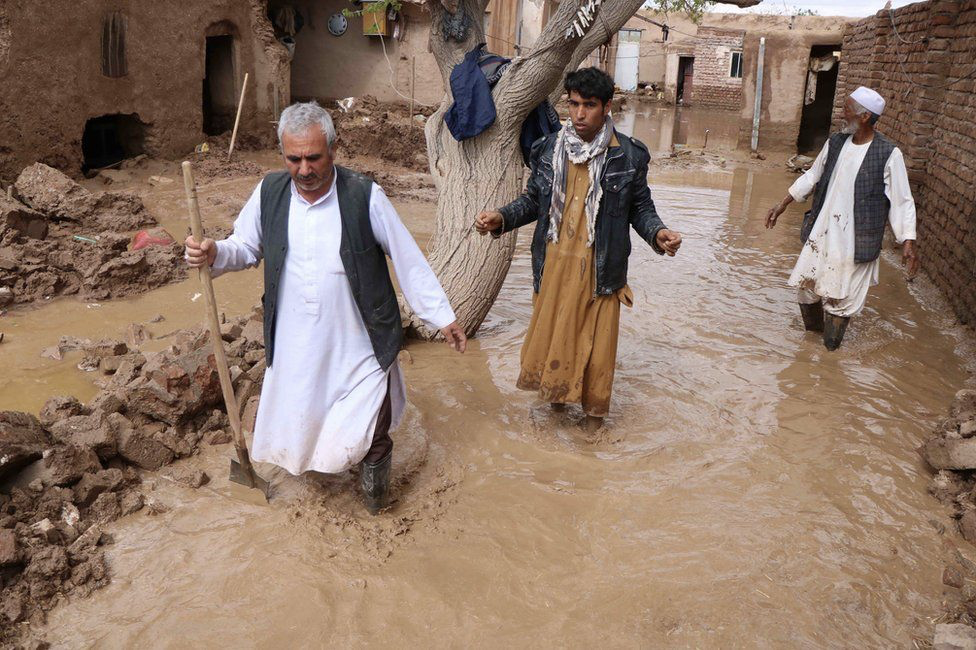209, Expert International Mansion,
Hootun South Road, Haidian District,
Beijing, China
Tel: 010-62928367 | Email: peaceland@peaceland.org.cn
In June 2022, a devastating earthquake happened in Afghanistan, causing hundreds of houses collapsed, 1500 people dead, and 2000 people injured. Just taken over by Taliban, the Islamic Emirate of Afghanistan hasn’t been fully recognized internationally and many countries are concerned about helping the emergency. Established as a non-profit organization in China, Peaceland Foundation reacted immediately after the news and planned flights to initiate emergency rescue and disaster relief in Afghanistan.

(Source: BBC)
Bu, a rescuer in both Afghanistan and Pakistan Flood, had been in armies for fifteen years with a strong knowledge foundation of outdoor rescue activities. Always willing to devote himself to saving people from disasters, he joined Peaceland Foundation in Anti-poaching operations in Zimbabwe, Thailand Coast Guard, and Domestic Flood and Earthquake Rescues. On December 2nd, 2022, we were honored to interview him about challenges Peaceland Foundation faced in Afghanistan and Pakistan Flood.

Picture of Bu
An Earthquake is Happening: What Shall We Do?
Wen Sha, a volunteer in Peaceland Foundation, heard from his brother who lives in Afghanistan, that an earthquake struck the country. Immediately, Peaceland Foundation contacted local Chinese people to learn more about the earthquake and people’s needs. However, after connecting with International Federation of Red Cross and Red Crescent Societies (IFRC), the team learned that there was no direct flight from Afghanistan to China.
If there wasn't a flight for people, what about goods?
An idea flashed through their mind, and the team quickly carried out B-plan: flying to Afghanistan from the planes that usually carry rosin from Afghanistan to China. However, after weeks of communicating with Afghanistan administrative department, the team was told that the plane was canceled because of failing to meet the targeted tons of rosin requirement.
At that time, it was already August. After careful consideration, the team connected with Pakistan airline companies and spent 550,000 yuan themselves to rent a plane from China to Afghanistan.
Finally Arrived In Afghanistan: New Strategies and Surprises
In August, 2022, the impact of the earthquake decreased, but the flood continued. To better cater to local needs, Peaceland Foundation changed its focus from saving people’s lives from disasters to preparing shelters and food for their home-reconstructions.
To their surprise, IFRC didn’t have professional rescuers and a comprehensive emergency reaction system for disease prevention, disinfection, and personnel evacuation. However, there was a Fire Accident Department, who often copes with forest fire, flood accident, and terrorist bombing issues and made up for IFRC’s weakness in post-disaster stage rescue.
Collaborating with IFRC and the Fire Accident Department, Peaceland Foundation helped resettle local citizens by providing facilities and living necessities like camps, beds, and water purification equipment (Afghanistan and Pakistan do not have the ability to independently produce water purifiers). The team also helped establish a cooperation mechanism between the two institutions.
Surprisingly, as Bu observed, influenced by local religions, people will pray when they are learning about rescue skills. Because of language barriers, volunteers use gestures to communicate with local people.
Reflection Upon Afghanistan Flood Rescue: How does it Differ from Pakistan
“We found that Pakistan has a relatively complete rescue system that includes not only disaster management departments, but also national emergency rescue forces called “Rescue 1122,” Bu said.
Compared with Afghanistan, Pakistan usually receives more international assistance because it’s less subject to political influence and has a more complete administrative system.
If they were to go to Afghanistan in the future again, as Bu suggested, they would learn from this first “exploration” experience by having clearer knowledge towards fastest ways to send rescuers towards places in need and establishing direct relationships with departments most familiar with corresponding skills needed for different stages of disaster. Specifically, when the disaster is happening, the team would buy food and shelters in nearby areas and distribute them to increase transportation efficiencies while organizing donations and rebuilding residential areas after the disaster.
Author: Liu, Haoxing (Rica)

209, Expert International Mansion,
Hootun South Road, Haidian District,
Beijing, China
Tel: 010-62928367 | Email: peaceland@peaceland.org.cn
© Copyright 2022 Peaceland Foundation 京ICP备 18056266号